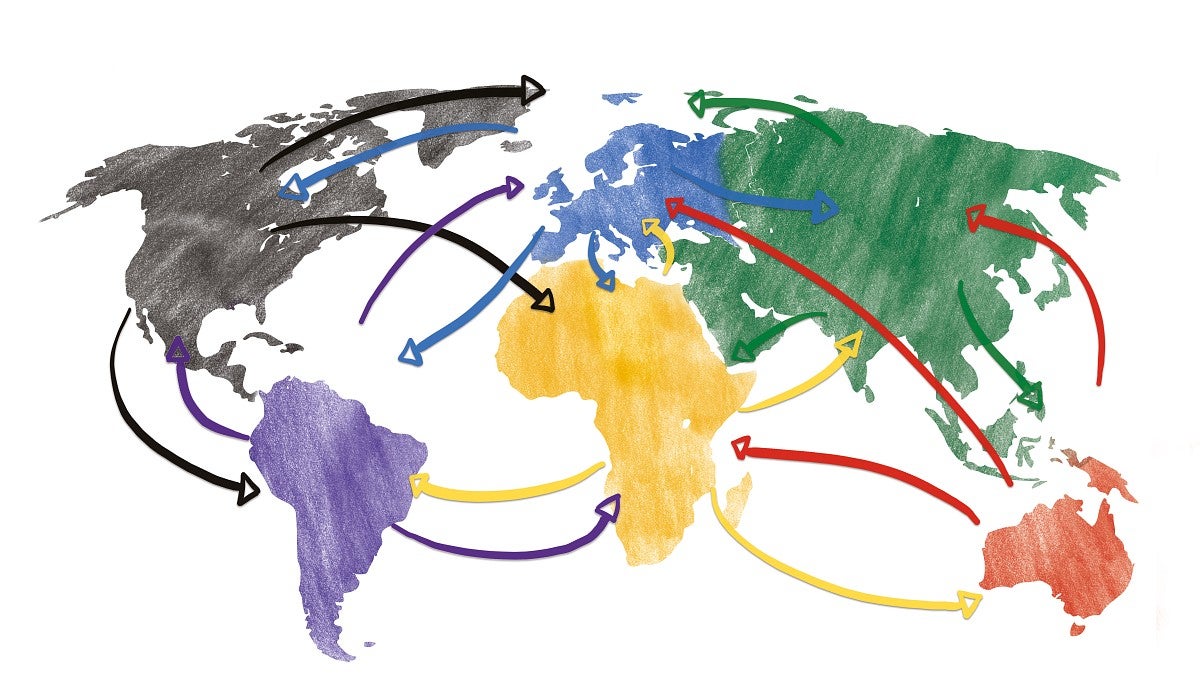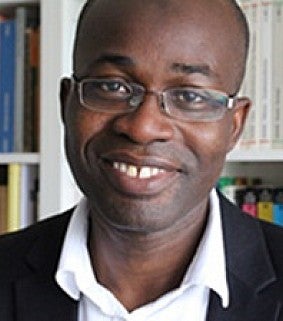
June 6, 2025 - 9:00am
Nadjib Sadikou presented the Peter B. Gontrum Lecture at the University of Oregon for the Department of German and Scandinavian. In a compelling talk titled “The Aesthetics of Interculturality in Contemporary German and African Literature,” Sadikou explored how narrative forms in literature can foster intercultural understanding, promote openness to pluralism and encourage respect for cultural differences.
Focusing on contemporary German and African literature, Sadikou analyzed how authors grapple with the outcomes of colonialism and respond to lasting power imbalances. He argued that literature serves as a critical space where cultural identities are negotiated and blended, particularly through discussions of home, displacement and belonging.
“I chose Dr. Sadikou for this year’s lecture to emphasize the inter-connectiveness of culture in our contemporary world,” said Michael Stern, associate professor of German and Scandinavian. “It was an opportunity to gather people from different disciplines, and that was what happened. To put it plainly — people from five continents attended the lectures. How often does that happen at the University?”
The creation of a scholar of German
Sadikou was born in Benin, a country in West Africa, where he grew up speaking Yoruba at home while receiving a French-language education. This cultural blend exposed him to cross-cultural dynamics from a young age. During high school, he chose to study German over Spanish. His passion for the German language deepened after he won a national essay competition, which earned him a scholarship to study in Germany.

He completed his undergraduate degree in Benin and then pursued his master’s and doctoral degrees in Germany. His dissertation focused on education in German and African literature, which is a subject that informed the themes of his thought-provoking presentation at the UO.
“It is extremely important to have guest lecturers at the UO who not only have different cultural backgrounds, but also those whose work emphasizes that, despite the various differences between cultures, similarities abound and deeply connect us in ways that transcend national borders,” said Alex Colombo, a doctoral candidate in German and Scandinavian.
Making cultural interaction standard
Drawing from thinkers like Édouard Glissant, Aimé Césaire and Anil Bhatti, Sadikou advocates for a nuanced understanding of cultural interaction — one that values complexity, embraces ambiguity and seeks common ground without erasing meaningful differences.
While acknowledging the risks of “too much interculturality,” especially when imposed through colonial or imperial structures, Sadikou sees intercultural dialogue as essential to human growth. In his view, literature provides a powerful platform for negotiating identity and cultural exchange, allowing readers to explore connections between texts and access widely shared human experiences, such as empathy.
“Too much interculturality is a very interesting question,” said Sadikou.
—Nadjib Sadikou,
Sadikou recently published a book titled “Nordsüdlicher Divan: Interkulturell verfasste Textwelten in deutschsprachiger und afrikanischer Literatur vom 18. Jahrhundert bis zur Gegenwart” ("North-South Divan: Interculturally composed textual worlds in German and African literature from the 18th century to the present") (November 2024), in which he examines how literature reconfigures cultural narratives. He is currently exploring how literature can serve as a tool for transformation, which enables readers to move beyond inherited cultural ideas and envision a more inclusive future.
—By Kendall Baldwin, College of Arts and Sciences
